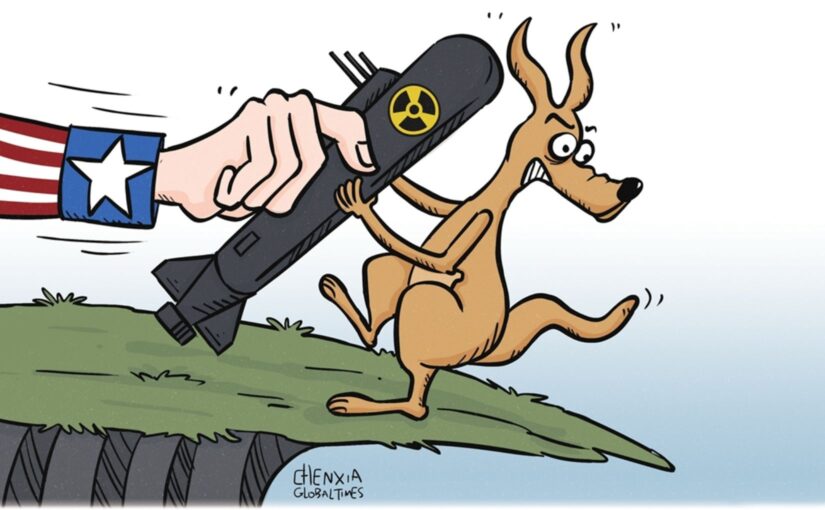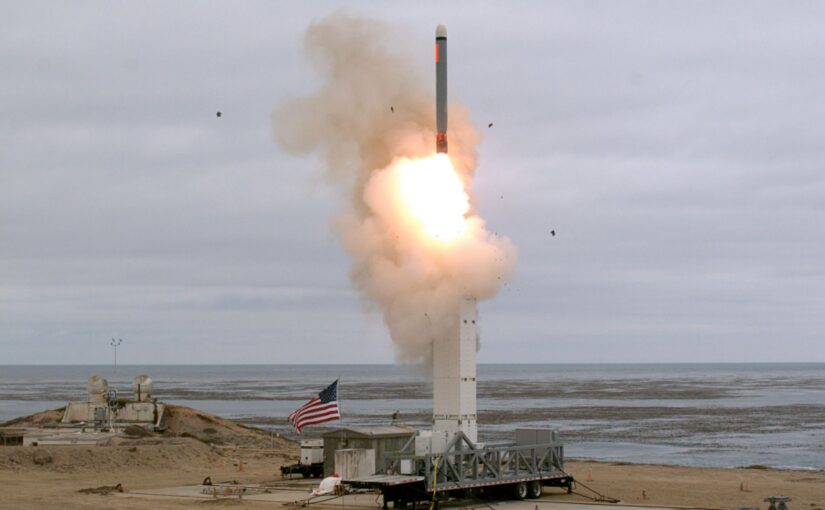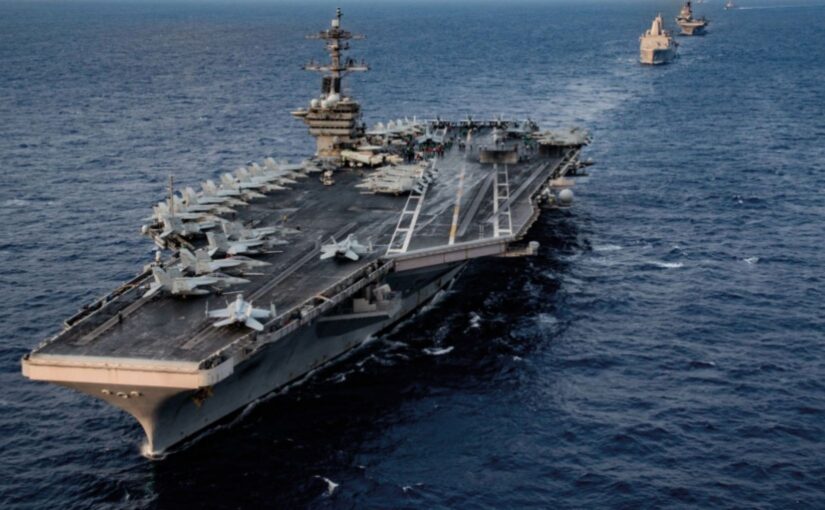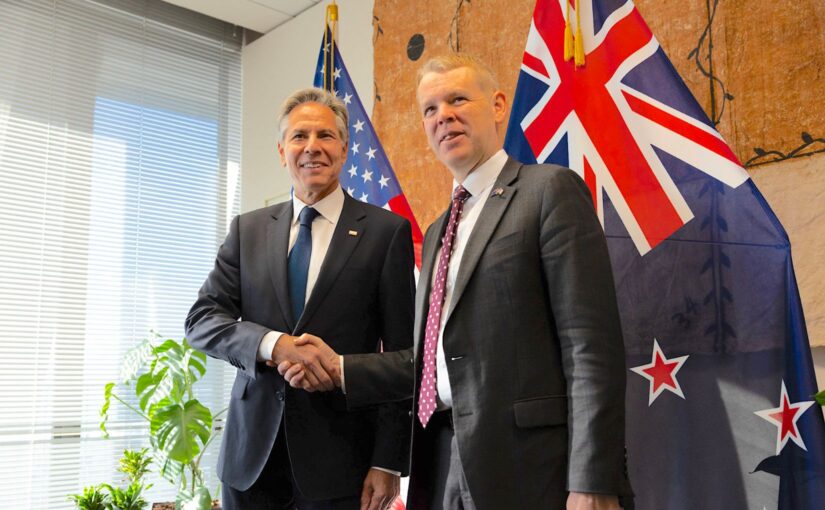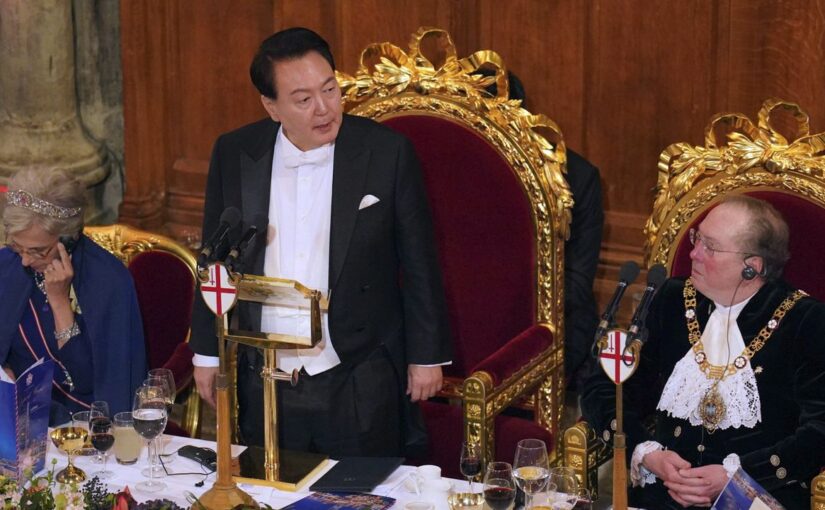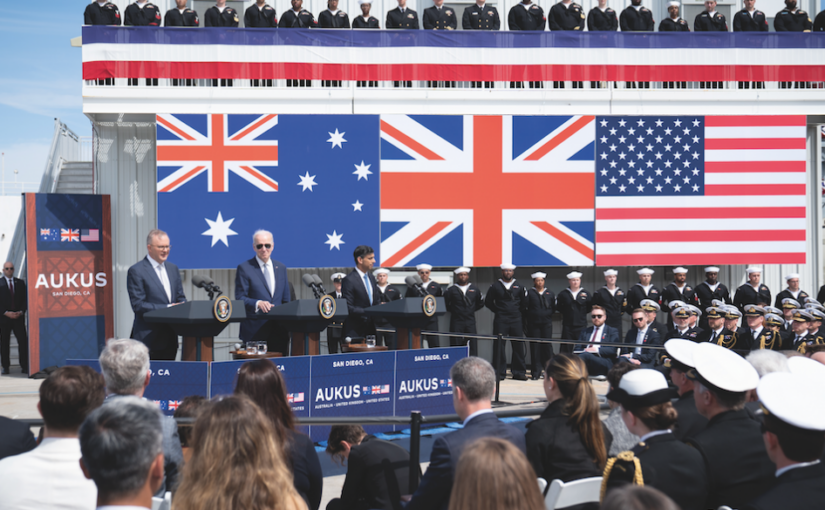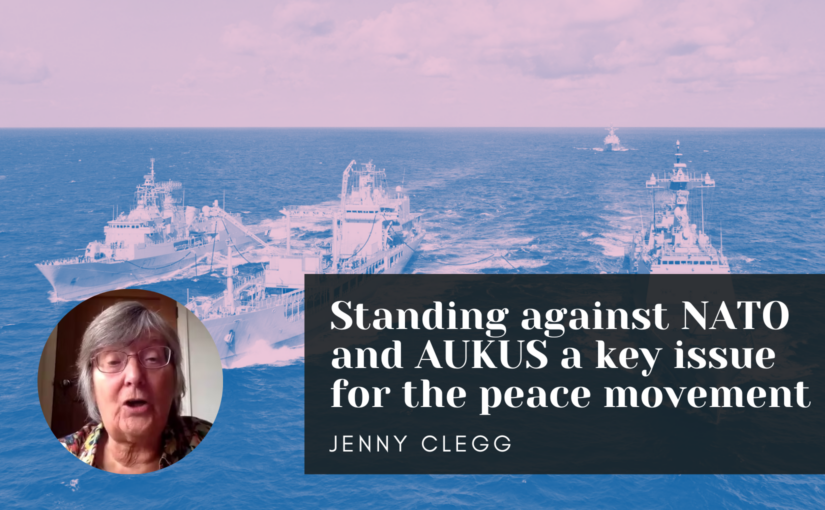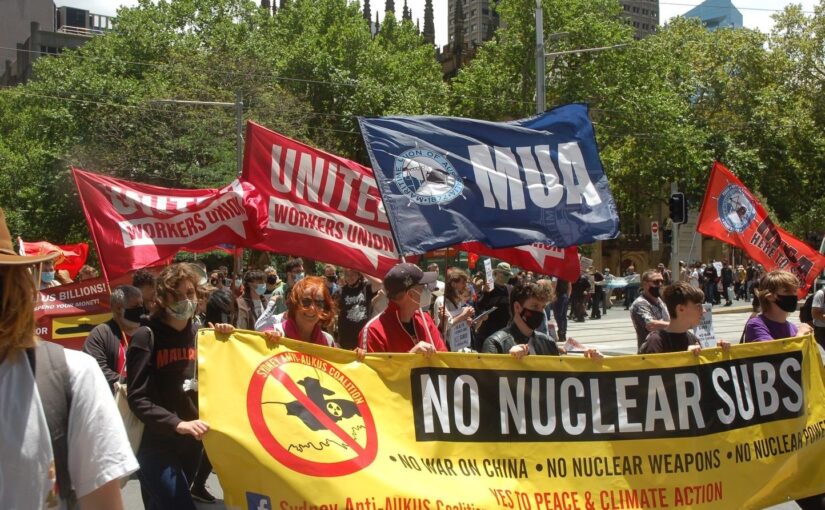In the following article, Richard Cullen dissects the AUKUS nuclear submarine agreement between Australia, Britain and the United States, which was first unveiled in September 2021.
Cullen draws on the recently published book, ‘Nuked: The Submarine Fiasco that Sank Australia’s Sovereignty’ by Andrew Fowler, an award-winning investigative journalist and former reporter with the Australian Broadcasting Corporation (ABC).
Fowler argues the AUKUS fiasco will, in particular, haunt the current Australian Labor Party (ALP) government for years to come. He claims that the ALP displayed unalloyed folly when it made zero effort to contain its reckless impulse to endorse then Prime Minister Scott Morrison’s first AUKUS announcement, lest the ALP be seen to be soft on defence.
In March 2023, the former ALP prime minister Paul Keating said that the endorsement of the AUKUS plan by the ALP government of Anthony Albanese, who assumed office in May 2022, was “the worst international decision” by an ALP government in over 100 years. He noted that, “China has never threatened to attack us”, yet the ALP had now “screwed into place the last shackle in the long chain which the Americans have laid out to contain China.” China’s “great sin”, Keating added, was to build an economy equal to the size of that in the US, suggesting that “Americans would have preferred” that 20 percent of the world’s population remain in poverty.
Cullen concludes: “Fowler’s exposition confirms that, just when the ALP should have stood back and acutely considered Australia’s sovereign interests, it manifestly failed to do so.”
The article was originally published in China Daily.
The now-notorious AUKUS agreement was secretly conceived between Australia, the United Kingdom and the United States prior to being publicly announced in September 2021 by the Morrison government in Canberra. It was aimed at eventually allowing Australia to acquire at least eight nuclear-powered submarines at an exceptionally high, initial estimated cost of up to A$368 billion ($249.1 billion), with the joint assistance of the US and the UK.
The existing contract, dating from 2016, for the Royal Australian Navy to acquire 12 conventionally powered submarines from France at an estimated cost of A$90 billion, was canceled virtually overnight. Shortly after this, President Emmanuel Macron of France was asked whether he thought then-Australian prime minister Scott Morrison had lied to him by not revealing Australia’s dialogue with the UK and the US over the acquisition of nuclear submarines. Macron replied, “I don’t think, I know.”
Andrew Fowler, an award-winning investigative journalist and former reporter with the Australian Broadcasting Corp, has just published a new book titled Nuked: The Submarine Fiasco that Sank Australia’s Sovereignty. Based on discussions with a range of global sources, this book “pieces together the plot to sink the French and switch to a nuclear-powered US submarine”, adding that this “botched operation compromised Australia’s ability to defend itself”.
Fowler argues the AUKUS fiasco will, in particular, haunt the current Australian Labor Party (ALP) government for years to come, and he is surely right about this. The ALP displayed unalloyed folly in 2021, when it made zero effort to contain its reckless impulse to endorse Morrison’s first AUKUS announcement, lest the ALP be seen to be soft on defense.
Apart from the colossal cost estimate, a range of other crucial aspects make this project look like it was holed below the waterline from day one. First, just consider who is going to supply these new submarines and when.
After the announcement, it became clear, according to The Guardian newspaper, that the first three to five submarines were to be acquired from the US in about a decade — as secondhand Virginia-class submarines.
A senior American congressman said, in 2023, that the US would not be foisting secondhand “clunkers” on Australia. Somewhat reassuring — but the delayed supply of sometimes outmoded American weapons to other allies at high cost is less reassuring.
Meanwhile, other senior American politicians have raised questions about whether the US can hand over any submarines to Australian control given the manifest lack of building-capacity in the US to meet American needs; and because of the risk to American national security in sharing submarine technology with Australia.
Then there is the UK, which is meant to work with Australia with a view to supplying a further five nuclear submarines. In February, The Daily Telegraph, in England, highlighted how Britain’s two newest aircraft carriers “aren’t fit for purpose”. The HMS Prince of Wales and the HMS Queen Elizabeth were both beset with significant operational faults that prevented or delayed their participation in a major NATO exercise.
And what about Australia? In 2014, the Australian defense minister said that he would not trust the government-owned Australian Submarine Corp “to build a canoe”, such was its low level of ship-building competence. The defense minister subsequently found he had to resign as a consequence of his candidness. But a huge question remains as to how Australia could possibly develop the very large, highly expert workforce needed to undertake major aspects of building a series of extremely complex nuclear submarines.
One argued advantage of nuclear-powered submarines is that their comparative operational silence presently makes them hard to detect once submerged. However, experts say that this advantage is already fading, and by the time that Australia might possibly have a full fleet of nuclear submarines over two decades from now, any such advantage is unlikely to apply. The Australian Strategic Policy Institute said, in March 2023, that their analysis showed the new AUKUS submarines “might be so easily detected (by the 2050s) they could become billion-dollar coffins”.
Then there is the question as to whether these will actually be Australian submarines — or American-controlled and partly manned submarines allowed to fly an Australian flag — all paid for by Canberra. In May, The Guardian ran a lead story claiming that the “US won’t guarantee that Australia will have complete control of AUKUS submarines”, in which they quoted US Deputy Secretary of State Kurt Campbell as saying that “when submarines are provided from the United States to Australia, it’s not like they’re lost — they will just be deployed by the closest possible allied force”.
Penetrating criticism of the AUKUS project has also been offered by a number of respected experts in Australia.
Sam Roggeveen of the Lowy Institute argues that AUKUS “is a project of vaulting ambition that is out of step with Australian tradition as a middle military power, wildly at odds with our international status and, most importantly, a wasteful expenditure of public money that will make Australia less safe”.
Hugh White, professor emeritus of strategic studies at the Australian National University and one of Australia’s principal defense commentators, published a withering essay in the journal Australian Foreign Affairs in February titled Dead in the Water: The AUKUS Delusion. White began by asking if Australia needs nuclear-powered submarines. His answer was a flat no. He argued that the likelihood of the plan unfolding effectively “is extremely low”, adding that “outright failure is a real possibility”. Reviewing White’s essay, another commentator, Nick Deane, highlighted how the UK end of the project has encountered major problems stretching back decades (see above), while in Australia, “long delays and cost overruns are certain”.
Bear in mind, too, that primary transatlantic media outlets like The New York Times and The Economist, and many other leading commentators, are now stridently telling the world that neither of the presumptive candidates (Joe Biden and Donald Trump) set to seek election as the next US president in November is fit to be appointed to that office.
In March 2023, the former ALP prime minister Paul Keating said that the AUKUS plan was “the worst international decision” by an ALP government in over 100 years. He noted that “China has never threatened to attack us”, yet the ALP had now “screwed into place the last shackle in the long chain which the Americans have laid out to contain China”. China’s “great sin”, Keating added, was to build an economy equal to the size of that in the US, suggesting that “Americans would have preferred” that 20 percent of the world’s population remain in poverty.
In his new book, Fowler provides a devastating critique of the entire AUKUS project based on extensive research, which ratifies the blistering evaluation of AUKUS offered by Keating in March last year. Fowler’s exposition confirms that, just when the ALP should have stood back and acutely considered Australia’s sovereign interests, it manifestly failed to do so.
